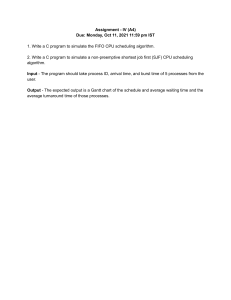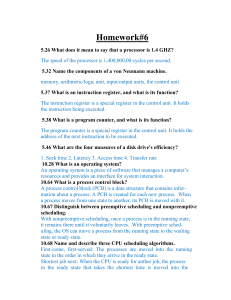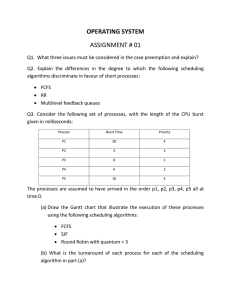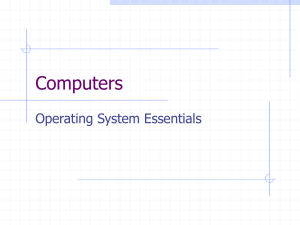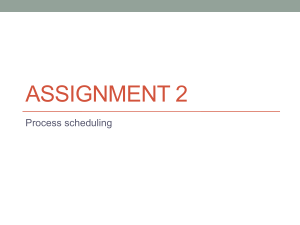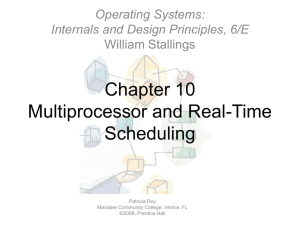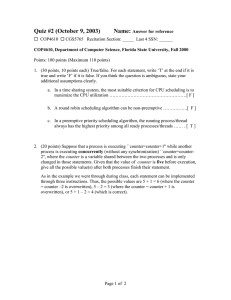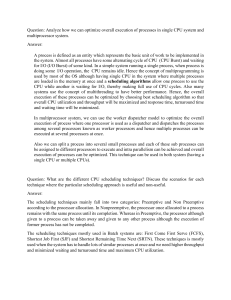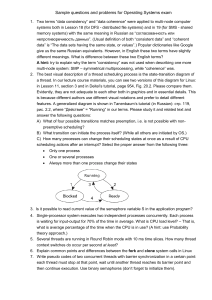COP4610/CGS5765: Operating Systems Midterm Name: Last 4 digits of your SSN:
advertisement
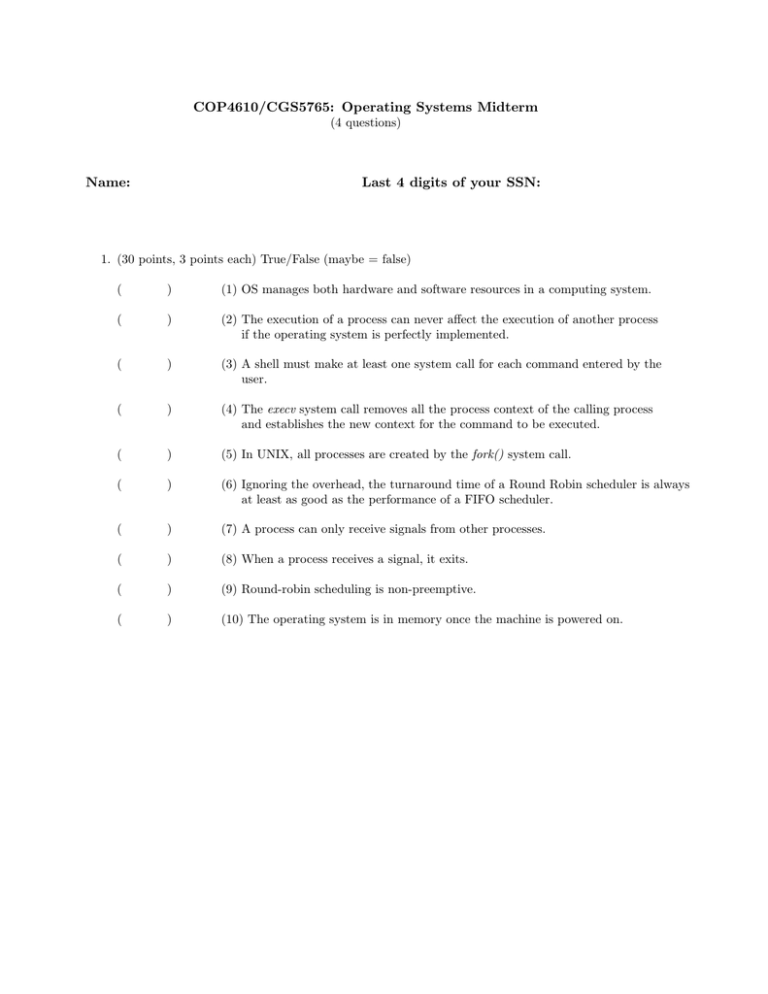
COP4610/CGS5765: Operating Systems Midterm (4 questions) Name: Last 4 digits of your SSN: 1. (30 points, 3 points each) True/False (maybe = false) ( ) (1) OS manages both hardware and software resources in a computing system. ( ) (2) The execution of a process can never affect the execution of another process if the operating system is perfectly implemented. ( ) (3) A shell must make at least one system call for each command entered by the user. ( ) (4) The execv system call removes all the process context of the calling process and establishes the new context for the command to be executed. ( ) (5) In UNIX, all processes are created by the fork() system call. ( ) (6) Ignoring the overhead, the turnaround time of a Round Robin scheduler is always at least as good as the performance of a FIFO scheduler. ( ) (7) A process can only receive signals from other processes. ( ) (8) When a process receives a signal, it exits. ( ) (9) Round-robin scheduling is non-preemptive. ( ) (10) The operating system is in memory once the machine is powered on. 2. (30 points, 5 points each) Explain the terms or give short answers to the questions (answers more than 3 sentences will get 0 point). • Process context: • Context switching: • Dispatching loop: • Process control block: • Multilevel queue scheduling algorithm: • list two inter-process communication mechanisms and the related system calls 3. (20 points) The following table shows that process CPU time, process arrival time and process priority. Compute the average turnaround time, average wait time, and average response time with the following scheduling schemes: first come first serve (FCFS), and priority (highest priority first) scheduling. (Note: make whatever assumptions you think are needed to complete the calculation) process 1 2 3 4 CPU time 10 2 5 3 arrival time 0 0 50 0 Priority 3 2 5 4 4. (20 points) Complete the following program that performs /usr/bin/cat > tmp < example1.c You may need to add your own data structures if necessary.
